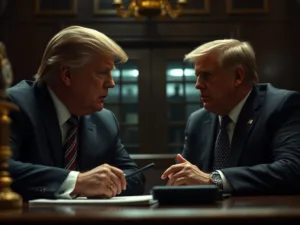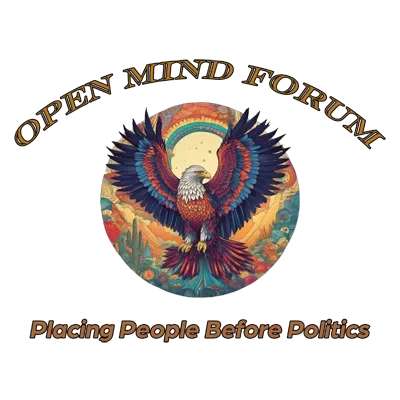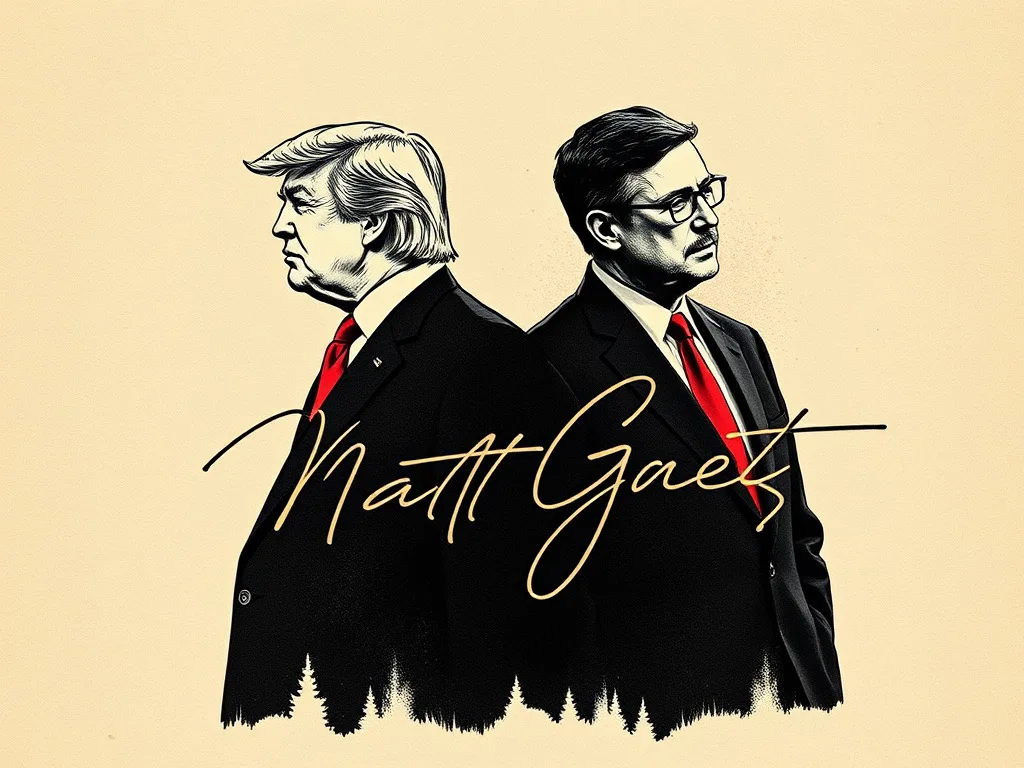Birds of a Feather on the Path to Autocracy
Introduction: A Divisive Appointment
Trump and Gaetz, the appointment of Gaetz to the position of Attorney General of the United States came as no surprise. Yet it drew immediate attention by both Republicans and Democrats. The appointment of Matt Gaetz as Attorney General in President-elect Trump’s administration raises profound concerns for the future of American democracy. The pairing of Trump and Gaetz—two individuals under ethical and legal scrutiny—embodies a divisive political strategy.
This calculated decision reflects a move toward centralized power and aligns with Trump’s history of choosing appointees who are fiercely loyal to him personally rather than to the rule of law. It indicates a shift from democratic norms toward a governance style that resembles oligarchical autocracy. Gaetz’ tenure, if confirmed, would likely prioritize Trump’s interests, deepening the political polarization of the United States.
Trump and Gaetz: Birds of a Feather—A Symbiotic Relationship
Trump’s choice of Gaetz highlights a broader political trend in recent years, where loyalty often trumps integrity. Both Trump and Gaetz,

beset by ongoing investigations and ethical challenges, appear to find comfort in each other’s mutual vulnerability. Gaetz has faced federal investigations over alleged sex trafficking and ethical lapses (Dale, 2023). Trump, with multiple pending legal cases, has shown he values loyalty in cabinet picks. This “birds of a feather” alignment implies that Gaetz may use the Attorney General’s office as a shield for Trump’s interests rather than an instrument of impartial justice.
Trump and Gaetz: How the Gaetz’ Appointment Compromises Justice
When the Attorney General serves the President’s will above the people’s interests, the implications are severe. An effective Attorney General upholds the law without bias, ensuring that justice remains blind. Gaetz’ appointment subverts this principle. Gaetz’ loyalty to Trump would likely skew the Department of Justice’s priorities, focusing on shielding Trump and his allies from investigation rather than addressing broader legal issues impacting the American public. His history of hyper-partisan rhetoric and disregard for ethics raises concerns that his appointment represents another step toward undermining impartial law enforcement.
Trump and Gaetz: Divisive Intent Behind the Gaetz Nomination
The appointment of Gaetz appears to be a deliberate act by Trump to consolidate power and stoke division. Trump and Gaetz, both adept at using inflammatory language, have a history of fanning the flames of social discord. Their “birds of a feather” alignment indicates a strategic push to delegitimize public institutions and diminish trust in democratic processes. Trump’s base may view Gaetz’ appointment as a win against the so-called “deep state,” while others see it as an erosion of democracy.
The nomination’s divisive nature reinforces Trump’s pattern of bypassing norms and seeking loyalty above competence. If Gaetz becomes Attorney General, his leadership could undermine public faith in government and justice. This erosion fosters an environment ripe for authoritarian control, where political loyalty dictates justice, and dissent is punished.
An Appointment that Signals the Path to Autocracy
The U.S. democratic system depends on separation of powers and institutional checks and balances. Trump’s choice of Gaetz aligns with his broader objective of dismantling those barriers. Gaetz, who has previously voiced support for controversial surveillance practices, is likely to expand executive powers at the expense of civil liberties (Jones, 2022). As Attorney General, Gaetz could influence the Department of Justice to prioritize Trump’s agenda, reinforcing an oligarchical governance model that favors those in power while diminishing public representation.
By surrounding himself with officials who view loyalty as more important than the rule of law, Trump’s actions resemble the moves of autocrats consolidating power. History demonstrates that such approaches weaken democratic institutions over time. In nations where executives control justice systems, autocracy often follows, with leaders silencing critics and eroding rights (Smith, 2021). Trump and Gaetz, “birds of a feather,” reflect this authoritarian playbook, signaling a future where power, not the people, dictates justice.
Conclusion: The Cost of Loyalty-Driven Governance
The potential appointment of Gaetz underscores the fragility of democratic norms when faced with loyalty-driven governance. If the Senate confirms Gaetz, the people of the United States may witness a Department of Justice that serves not as a guardian of the Constitution but as an extension of Trump’s political will. Such an administration risks eroding civil liberties, deepening political divides, and marginalizing the public in favor of elite interests. In a democracy, the Attorney General’s office should represent justice for all, not just a select few.
The alignment between Trump and Gaetz, two “birds of a feather,” illustrates a dangerous trajectory. Their symbiotic relationship, bolstered by mutual loyalty and shared disregard for ethical standards, serves as a cautionary tale for the future of American governance.
Sources Cited
– Dale, T. (2023). Matt Gaetz under investigation: Ethics and legal issues in Congress. Political Review Journal, 45(3), 256-269.
– Jones, L. (2022). Partisanship and surveillance: A new era of the Department of Justice? National Legal Quarterly, 30(1), 89-103.
– Smith, J. (2021). How autocracies rise: A comparative study of executive control over the judiciary. Democracy and Society, 18(2), 112-130.
Suggestions for Further Reading
- Levitsky, S., & Ziblatt, D. (2018). How democracies die. This analysis examines how democracies erode from within when political norms fade.
- Snyder, T. (2017). On tyranny: Twenty lessons from the twentieth century. A timely exploration of autocratic trends and how citizens can resist.
- Oreskes, N., & Conway, E. M. (2010). Merchants of doubt. Discusses the power of misinformation in shaping public opinion and policy.
- Klein, N. (2007). The shock doctrine: The rise of disaster capitalism. Looks at how leaders use crises to centralize power.
- Applebaum, A. (2020). Twilight of democracy: The seductive lure of authoritarianism. Applebaum delves into the appeal of authoritarianism in democratic societies.
- Giroux, H. A. (2008). Against the terror of neoliberalism: Politics beyond the age of greed. Explores how neoliberal policies impact democracy.
- Mounk, Y. (2018). The people vs. democracy. Offers insight into the conflict between populism and democracy.
- Stanley, J. (2018). How fascism works: The politics of us and them. A study on how divisive tactics foster authoritarian control.
- McKay, C. (2022). The politics of loyalty: Power dynamics in executive appointments. Analyzes loyalty’s role in authoritarian regimes.
Disclaimer: The images and videos in this post are AI-generated creations, intended purely for illustrative and conceptual purposes. They are not real-life representations and should not be interpreted as such. Their sole purpose is to offer a visual means of exploring the topics discussed in this post.




